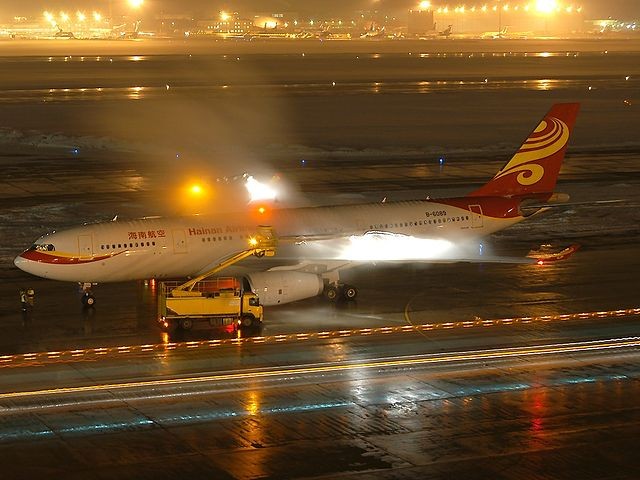Hainan Airlines, one of China’s leading carriers, recently announced that it has successfully completed what to be regarded as the country’s first-ever biofuel-powered passenger flight.
On Saturday, the airline stated that over a hundred passengers from Shanghai were able to reach Beijing through the Boeing 737-800, which utilized a Sinopec-biofuel made from restaurants' waste cooking oil.
According to Hainan Airlines' vice president, Pu Ming, "the flying was as smooth as before, and the power was no different from traditional jet fuel."
The company stated that the fuel was blended with traditional jet fuel with a 50-50 proportion. For each flight, the mixture could diminish the emission of carbon dioxide by around 50 to 80 percent.
Biofuels have long been eyed as an alternative for powering carriers. These are typically made from renewable resources such as algae oil, restaurant waste oil, palm oil, coconut oil, linseed oil and animal fats.
Back in Oct. 2011, the country's flagship carrier, Air China, conducted the first test flight with Boeing 747-400. In April 2013, China Eastern Airlines conducted another biofuel-powered test flight with an Airbus A320.
According to industry players, high cost is one of the biggest hindrances for fully utilizing biofuel in passenger flights. Sinopec representative Xu Hui said that the cost is about twice or thrice compared with regular flights.
"After the cost goes down, it can be used on more flights," Hainan's Operation Control Department chief dispatcher, Zhou Zhijun, stated during the press conference.
Asked about the their perception about the biofuel-powered flight, Boeing 737-800 passenger Luo Chen enthused: "I was a little concerned at first, because the fuel is different from the usual, but it seemed fine when flying."




























